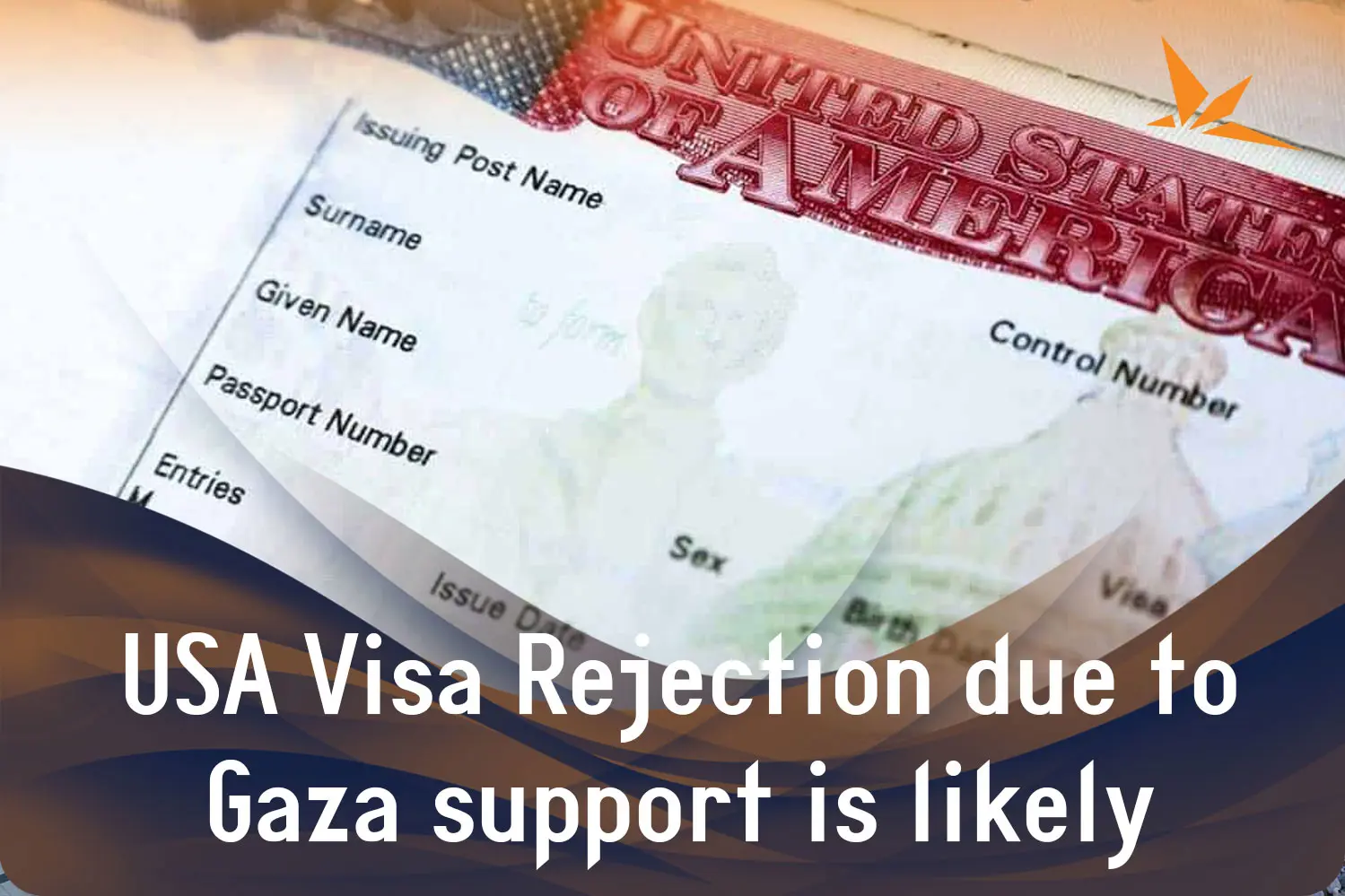
Recent reports and growing concerns among USA visa applicants in Pakistan suggest that expressing support for Palestine or criticizing Israeli actions on social media platforms could significantly jeopardize their chances of obtaining a USA visa. This development has sent ripples of anxiety through communities aspiring to travel to the United States for various purposes, including education, tourism, and immigration.
The United States Citizenship and Immigration Services (USCIS) and the Department of State have not issued any official statements explicitly outlining such a policy. However, anecdotal evidence and reports from immigration lawyers and visa consultants indicate a heightened scrutiny of applicants' social media activity, particularly concerning views on geopolitical conflicts.
This news has particularly impacted individuals in Pakistan, a country with a significant Muslim population and a long-standing public sentiment in favor of Palestine. The prospect of their opinions, expressed online, influencing the outcome of their usa visa applications has raised serious concerns about freedom of expression and potential bias in the usa visa process.
Despite USA's recent crackdown on foreign students, the Schenge states have been very calm and sane with respect to international students and expats. Morover, the Schenge visa from Pakistan process has been going as normal.
Increased Scrutiny of Social Media: A New Hurdle in the USA Visa Process
Over the past few years, there has been a discernible trend towards more rigorous background checks for usa visa applicants. This includes examining travel history, financial records, and increasingly, their digital footprint. Social media platforms, where individuals often express their personal and political views, have become a focal point of this scrutiny.
While the official guidelines for usa visa eligibility primarily focus on security risks, criminal history, and financial stability, the interpretation of these guidelines appears to be expanding to include an assessment of an applicant's ideological leanings as expressed online.
Key Areas of Concern:
- Pro-Palestine Content: Posts expressing solidarity with Palestine, condemning Israeli actions, or using specific hashtags related to the conflict are reportedly being flagged.
- Criticism of US Foreign Policy: Expressing critical views on the United States' foreign policy in the Middle East is also believed to be a factor in increased scrutiny.
- Association with Certain Groups: Any perceived association, even through social media engagement, with organizations or individuals deemed critical of US or Israeli policies could raise red flags.

Rumeysa Ozturk: US immigration officials arrest Turkish student amid crackdown
Impact on USA Visa Applicants from Pakistan
For Pakistanis seeking a usa visa from Pakistan, this potential link between their social media activity and visa approval adds another layer of complexity to an already intricate process. The desire to express solidarity with Palestine, a widely held sentiment in the country, now clashes with the potential risk of jeopardizing their travel aspirations to the United States.
Testimonies and Concerns:
While official data is unavailable, several individuals who have applied for a usa visa from Pakistan have reported being subjected to unusually detailed questioning about their political views and online activity during their visa interviews. Some have even reported denials without clear explanations, leading to speculation that their social media presence might have played a role.
"I was asked extensively about my views on the Palestine issue during my interview," shared a recent applicant who wished to remain anonymous. "They even had printouts of some of my Facebook posts from years ago. It was quite intimidating."
Immigration lawyers in Pakistan are also witnessing an increase in inquiries from concerned applicants. "We are advising our clients to be extremely cautious about their social media activity, especially in the period leading up to their visa application," said one Lahore-based lawyer specializing in US immigration. "While freedom of speech is a fundamental right, its exercise on public platforms can now have tangible consequences for visa seekers."
Understanding the USA Visa Process and Fee Structure
The usa visa process for Pakistani citizens involves several steps, each requiring meticulous attention to detail. Understanding these steps is crucial for any applicant, especially in light of these new concerns regarding social media scrutiny.
Steps in the USA Visa Process:
Determine the Visa Type: Identify the specific type of visa required based on the purpose of travel (e.g., tourist visa (B-2), student visa (F-1), business visa (B-1)).
Complete the Online Application Form (DS-160): This comprehensive form requires detailed personal information, travel history, and background details. Accuracy is paramount.
Pay the USA Visa Fee: The usa visa fee varies depending on the visa type. For most common non-immigrant visas, the fee is currently $185 (as of late 2024 and early 2025). This fee is non-refundable, even if the visa is denied.
| Visa Category | Fee (USD) | Fee (PKR) (Approximate) |
|---|---|---|
| Visitor Visas (B1/B2), Student (F, M), Exchange (J) | $185 | PKR 52,000 |
| Petition-Based Visas (H, L, O, P, Q, R) | $205 | PKR 58,000 |
| Treaty Trader/Investor Visas (E category) | $315 | PKR 89,000 |
Schedule and Attend the Visa Interview: Applicants are required to appear in person at the US Embassy or Consulate in Islamabad for an interview with a consular officer. This is a critical stage where the officer assesses the applicant's eligibility for the visa.
Submit Supporting Documents: Depending on the visa type, applicants need to submit various supporting documents, such as passport, photographs, financial statements, educational transcripts, and letters of invitation.
Visa Processing: After the interview, the visa application undergoes further processing. The processing time can vary.
Passport Return: If the visa is approved, the applicant's passport with the visa stamp will be returned.
Precautions for Visa Applicants
Given the evolving situation, it is crucial for Pakistani citizens applying for a usa visa to exercise caution regarding their online presence. While it is not advisable to completely erase one's opinions, a more measured approach might be necessary.
Recommendations for Applicants:
- Review Social Media Profiles: Carefully review past posts and engagements, especially those related to politically sensitive topics.
- Exercise Restraint: Consider limiting public expression of strong political opinions on social media platforms during the visa application process.
- Be Prepared for Questions: Anticipate potential questions about your political views and online activity during the visa interview and prepare honest and concise responses.
- Seek Professional Advice: Consult with experienced immigration lawyers or visa consultants who can provide guidance on navigating the current climate.
- Focus on Eligibility Criteria: Ensure that all other aspects of your application, such as financial stability and travel purpose, are clearly and accurately documented.
Broader Implications and Concerns
This potential link between social media opinions and usa visa approvals raises broader concerns about freedom of expression and the role of digital platforms in immigration processes. Critics argue that such scrutiny could lead to self-censorship and disproportionately affect individuals from certain religious or political backgrounds.
The lack of official transparency regarding these alleged practices further exacerbates anxieties among potential visa applicants. Clarity from the US authorities on how social media activity is being evaluated in the usa visa process would be beneficial in addressing these concerns.
In conclusion, while there is no official confirmation of a direct policy linking social media posts favoring Palestine to usa visa rejections, the growing anecdotal evidence and concerns among applicants from Pakistan suggest a heightened level of scrutiny. As the usa visa process continues to evolve, it is imperative for applicants to be aware of these potential implications and exercise caution in their online interactions while diligently preparing their applications and understanding the associated usa visa fee and procedures. The situation underscores the increasing intersection of digital life and international travel, demanding greater awareness and careful navigation for those seeking to enter the United States.
;More Travel News
-
 10-Feb-2022Peugeot 2008 SUV Going To Be Hit Car In Pakistan
10-Feb-2022Peugeot 2008 SUV Going To Be Hit Car In Pakistan -
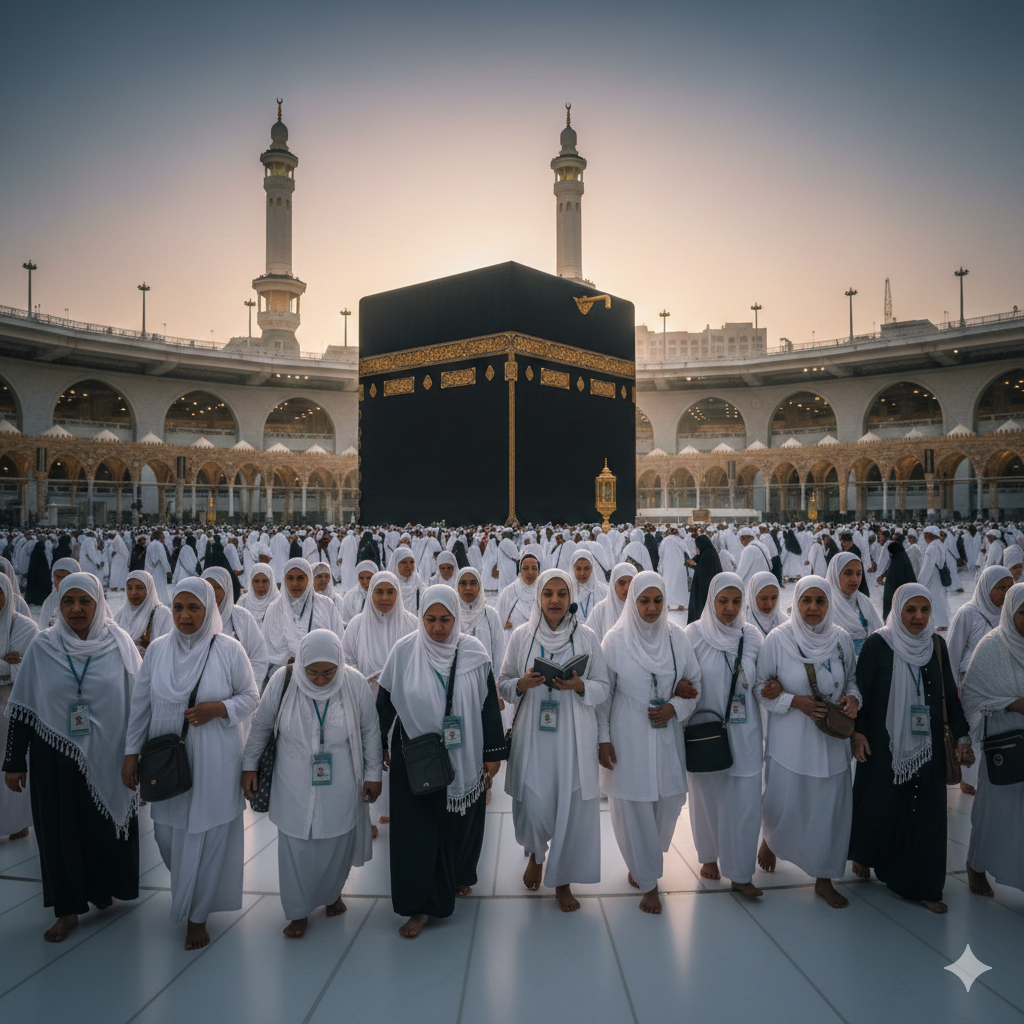 29-Jan-2026The Ultimate Guide to Women-Only Umrah Groups
29-Jan-2026The Ultimate Guide to Women-Only Umrah Groups -
 01-Nov-2025From Ban to Boom: Inside Pakistan’s Aviation Comeback Story
01-Nov-2025From Ban to Boom: Inside Pakistan’s Aviation Comeback Story -
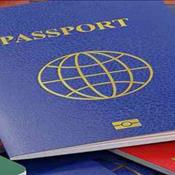 16-Jan-2020Most Powerful Passport in the World 2020 Check Who's On Top
16-Jan-2020Most Powerful Passport in the World 2020 Check Who's On Top -
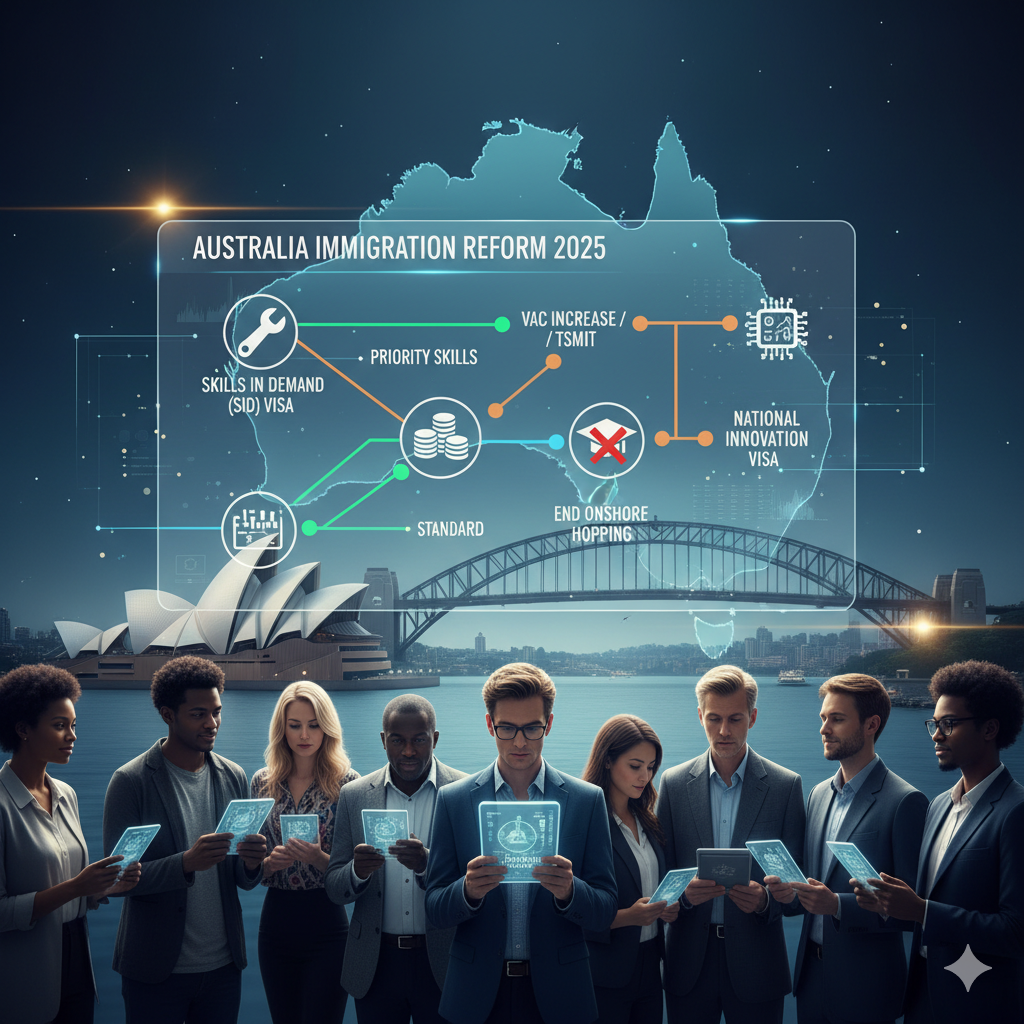 15-Oct-2025New Visa Processing Directive in Store for Australia's
15-Oct-2025New Visa Processing Directive in Store for Australia's -
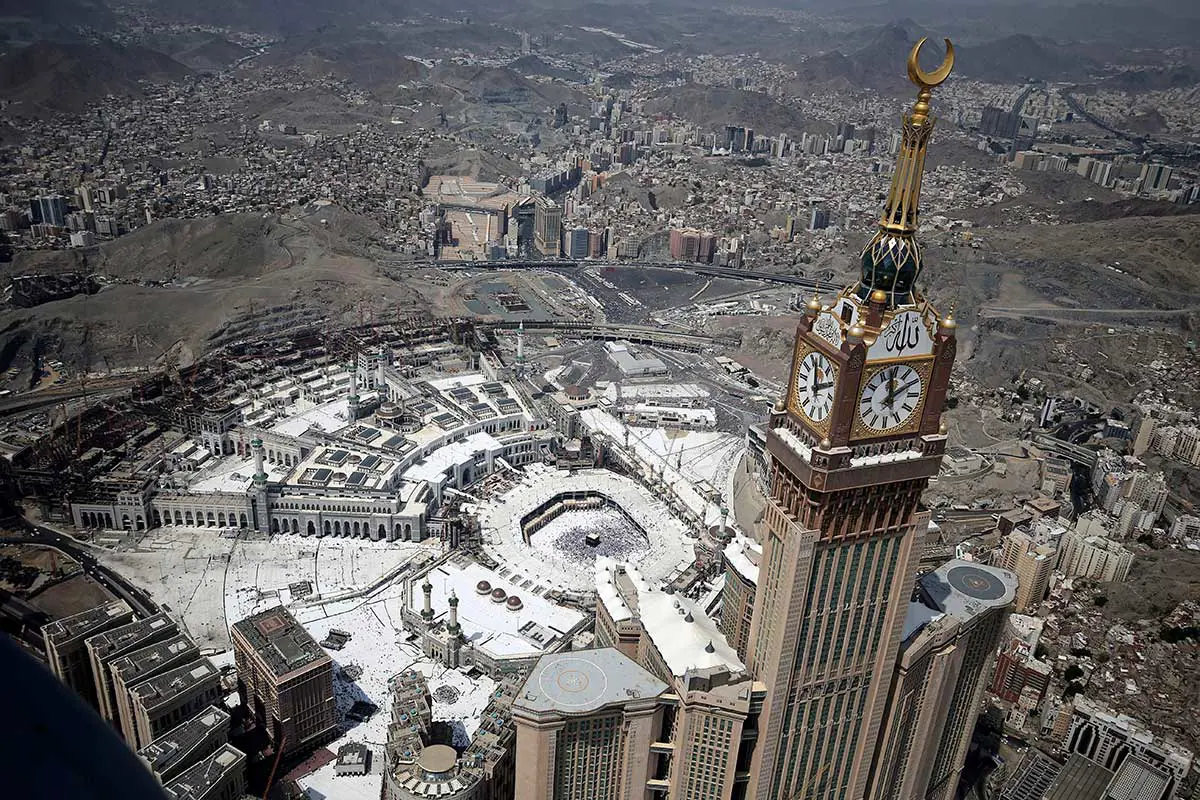 16-Apr-2025Accommodation rules updated for Hajj 2025 pilgrims, says Saudi Arabia.
16-Apr-2025Accommodation rules updated for Hajj 2025 pilgrims, says Saudi Arabia. -
 24-Apr-2025Pakistan’s First Electricity-Producing Road Set to Launch in Lahore
24-Apr-2025Pakistan’s First Electricity-Producing Road Set to Launch in Lahore -
 02-Aug-2021Thousands of Animal Human Bones in Saudi Arabia Cave
02-Aug-2021Thousands of Animal Human Bones in Saudi Arabia Cave -
 30-Apr-20205 Situation When it Make Sense To Purchase Travel insurance?
30-Apr-20205 Situation When it Make Sense To Purchase Travel insurance? -
 05-Dec-2019Get Host Visa for Saudi Arabia
05-Dec-2019Get Host Visa for Saudi Arabia -
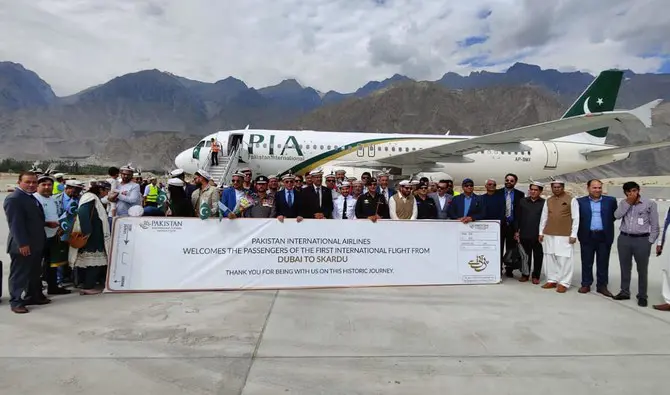 02-Jun-2025PIA Resumes Direct Dubai-Skardu Flights: A Gateway to Pakistan's Northern Treasures
02-Jun-2025PIA Resumes Direct Dubai-Skardu Flights: A Gateway to Pakistan's Northern Treasures -
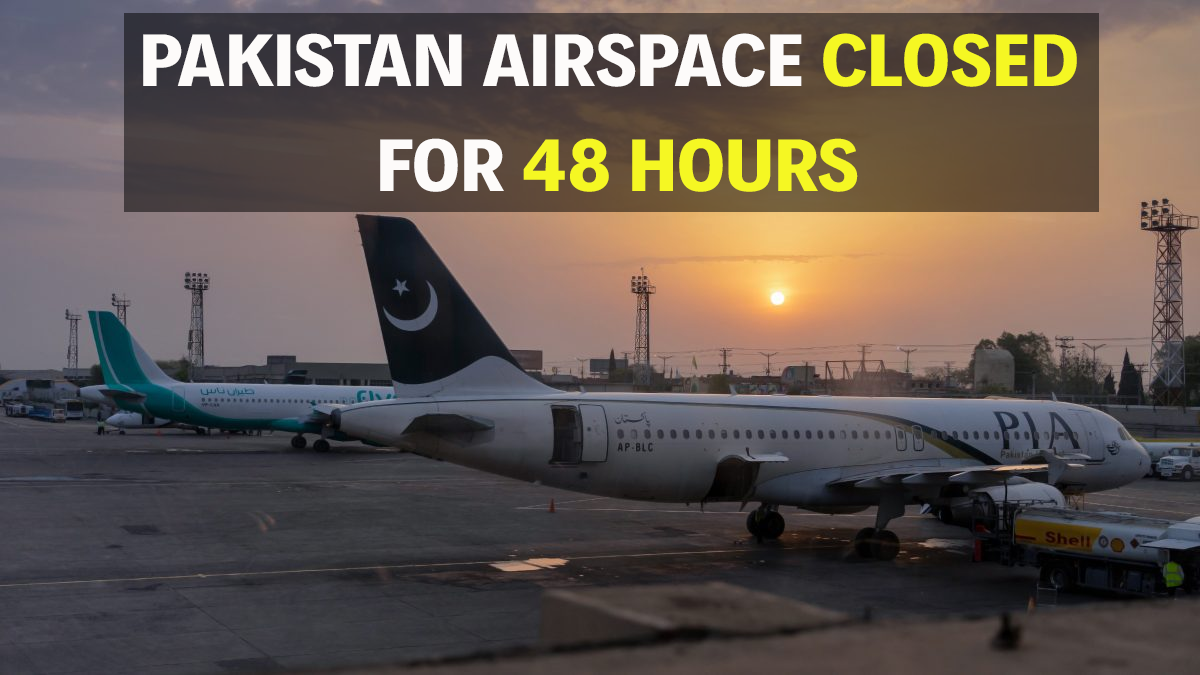 07-May-2025Pakistan Airspace Closed for 48 Hours: Nationwide Airport Shutdown Disrupts Travel
07-May-2025Pakistan Airspace Closed for 48 Hours: Nationwide Airport Shutdown Disrupts Travel
